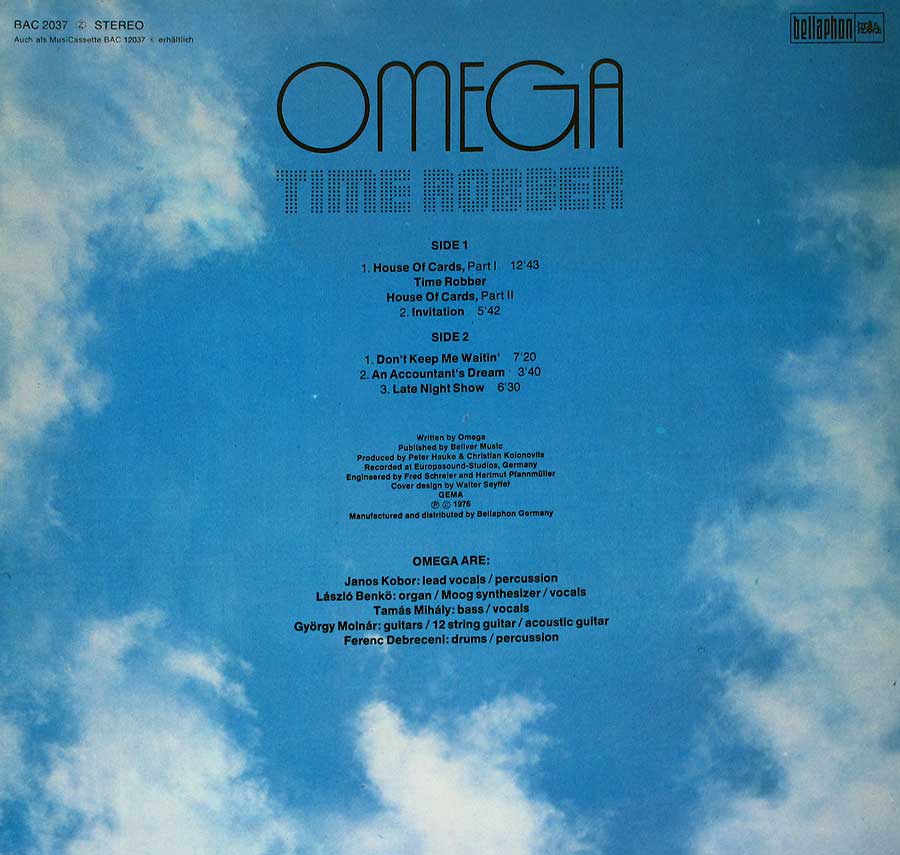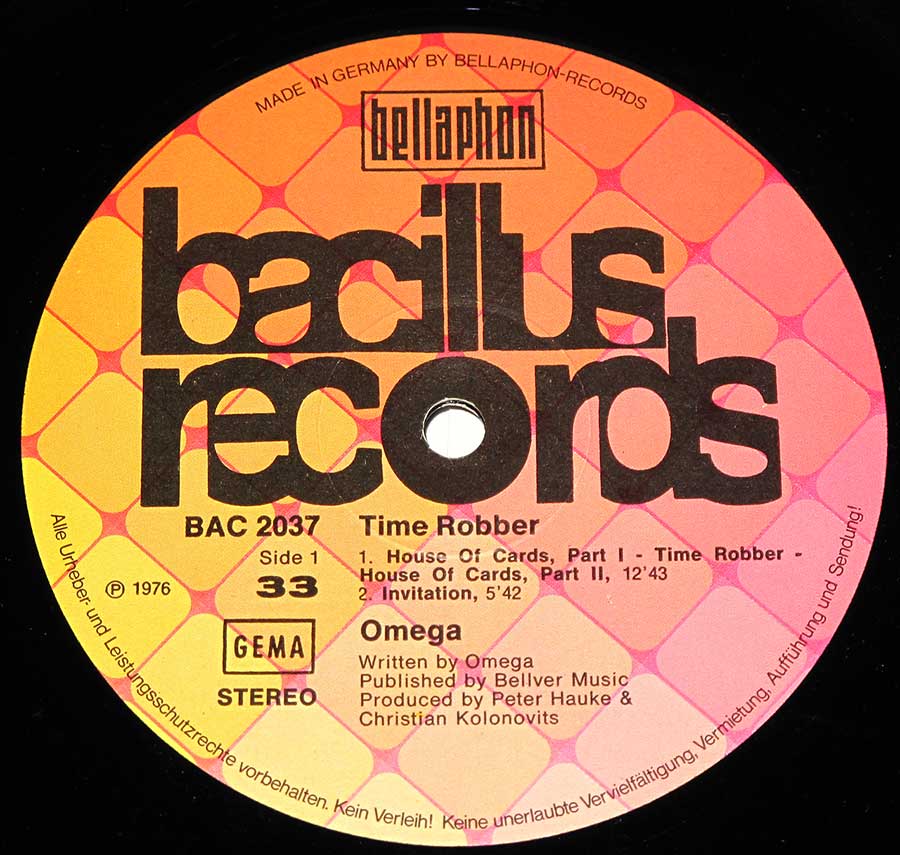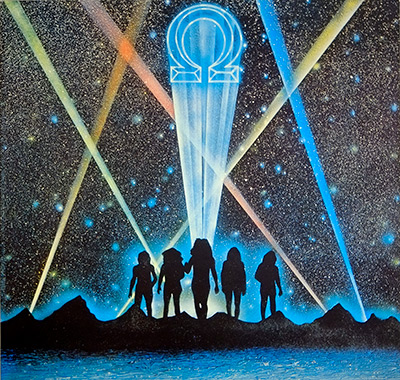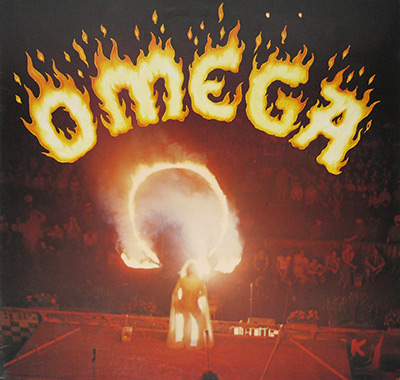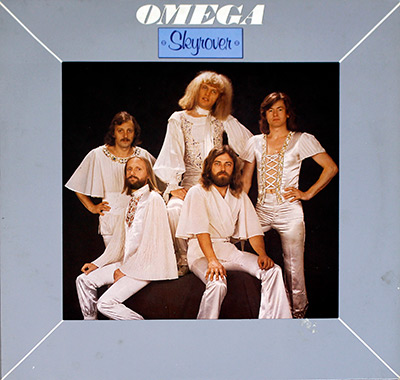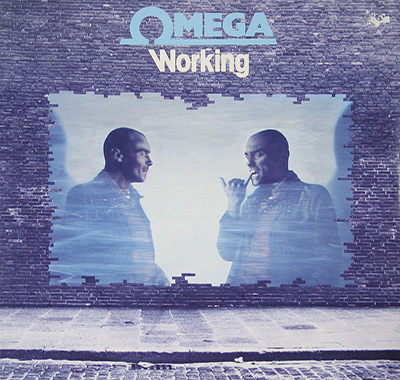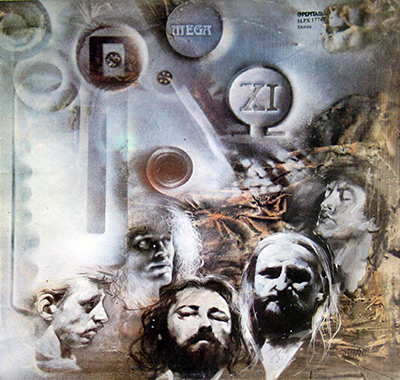OMEGA - "Time Robber" (1976) Album Description:
OMEGA’s "Time Robber" lands like a clean, confident statement: Eastern European prog that doesn’t beg for permission, it just walks in, switches the lights to “cosmic,” and dares you to keep up. Recorded in Germany and aimed at Western ears without sanding off the band’s Hungarian spine, it’s a split-screen album—symphonic sweep on one side, psychedelic after-hours on the other—and the trick is how natural that pivot feels.
Hungary, 1976: making big music in a small box
Hungary in the mid-1970s lived under the Kadar-era “goulash communism” vibe: less brutal than some neighbors, still supervised, still monitored, still absolutely not a free-for-all. Rock existed inside a cultural sorting machine that quietly decided what was supported, tolerated, or banned, and bands learned to write songs that could pass the room-temperature politics test. For a prog group with long forms and grand moods, that meant ambition had to be paired with discipline, and every public move had a paperwork shadow.
Why prog in Eastern Europe was hard mode
Western prog bands worried about critics calling them “dinosaurs”; Eastern European prog bands had to worry about passports, budgets, studios, and whether a lyric sounded too “suggestive” to the wrong committee. Touring was complicated, gear was harder to get, and releasing music across borders could turn a band into a suspicious “Western-facing” project overnight. That pressure doesn’t kill creativity here—it sharpens it, like writing epics with the volume knob permanently stuck at “polite.”
Where "Time Robber" sits in the 1976 prog weather
1976 was a weird year for progressive rock: the big names were still putting out serious work, but the cultural wind was shifting toward leaner, meaner sounds. Genesis dropped "A Trick of the Tail," Rush lit a fuse with "2112," and Kansas turned symphonic instincts into arena momentum with "Leftoverture"—proof the form wasn’t dead, just under new scrutiny. Omega’s move was to keep the imagination, tighten the delivery, and make the “space” feel emotional instead of indulgent.
"Time Robber" sounds like a sci-fi film scored by people who still sweat, still stumble, and still mean it.
Sound and texture: symphonic daylight, psychedelic midnight
The album’s first half has that symphonic-prog lift—keys stretching wide, guitars glinting at the edges, rhythms built to carry long arcs without collapsing. Then it turns: side two gets hazier, more nocturnal, with a Pink Floyd-adjacent patience where the space between notes is part of the melody. The production keeps it crisp enough to travel, but not so polished that it loses the human fingerprints.
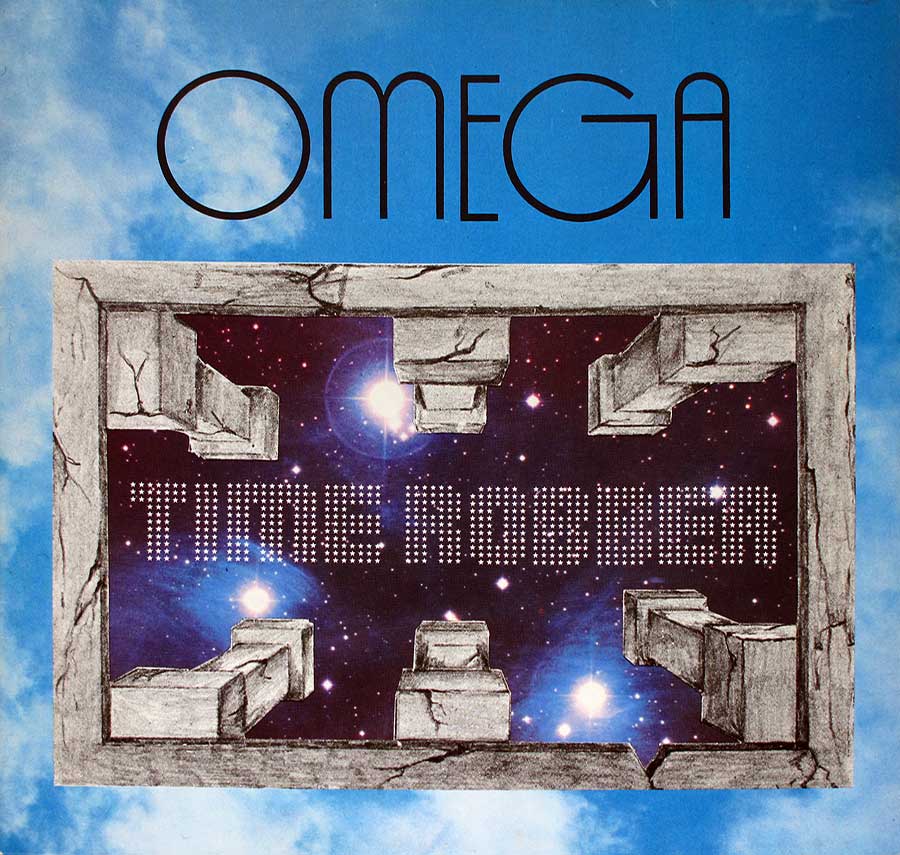
Standout moments: three songs that sell the whole case
If you want the album’s mission statement, start with the title track: it moves like a slow machine waking up, then locks into a confident stride. "House of Cards" plays the long game—sections folding into each other like a story that keeps changing its narrator without losing the plot. And "Invitation" is the sly one: it feels welcoming, but it’s really a doorway into the album’s more psychedelic headspace.
- "Time Robber" — the centerpiece: patient build, big payoff, no cheap drama.
- "House of Cards" — symphonic structure with a heartbeat, not a blueprint.
- "Late Night Show" — late-hour psych glow, where tension hangs in the air on purpose.
Key people behind the recording
Producer Peter Hauke matters here because the album needs someone who understands scale without drowning it in fog. Recorded at Europasound Studios in Germany, "Time Robber" sounds like a band deliberately stepping into a wider room—bigger sonics, clearer edges, and enough punch to compete on Western shelves. The goal isn’t sterile perfection; it’s translation: making Omega’s atmosphere readable outside Budapest without turning it into postcard music.
Band timeline and the lineup that nailed it
Omega started in the early 1960s and churned through the usual early-years turbulence, but by the 1970s they’d locked into a durable core. The 1976 lineup—Janos Kobor, Laszlo Benko, Tamas Mihaly, Gyorgy Molnar, Ferenc Debreczeni—plays like a unit that’s argued, toured, survived, and learned how to leave space for each other. That stability is why the album can swing between symphonic and psychedelic without sounding like two different bands fighting in the same room.
Controversy: not a scandal, a tightrope
The “controversy” around "Time Robber" is the kind Eastern European rock ran into all the time: visibility itself could be provocative. An English-language Western release and Germany-based recording meant the band was operating closer to the border between “tolerated” and “supported,” where success abroad could raise eyebrows at home and expectations abroad could squeeze the art. The album’s real rebellion is subtler: it insists that Hungarian prog can sound international without surrendering its identity, and that’s exactly the kind of thing gatekeepers never fully relax about.
References
- Omega (band) overview and lineup history
- Discogs master entry: "Time Robber" releases and credits
- Christian Kolonovits discography note for "Time Robber"
- Release notes: Europasound/Offenbach session and Western breakthrough framing
- Hungary’s “three Ts” cultural sorting context (tolerated/supported/banned)
- Academic background on Hungary’s “three Ts” cultural policy
- Genesis "A Trick of the Tail" (1976) release context
- Rush "2112" (1976) release context
- Kansas "Leftoverture" (1976) release context
